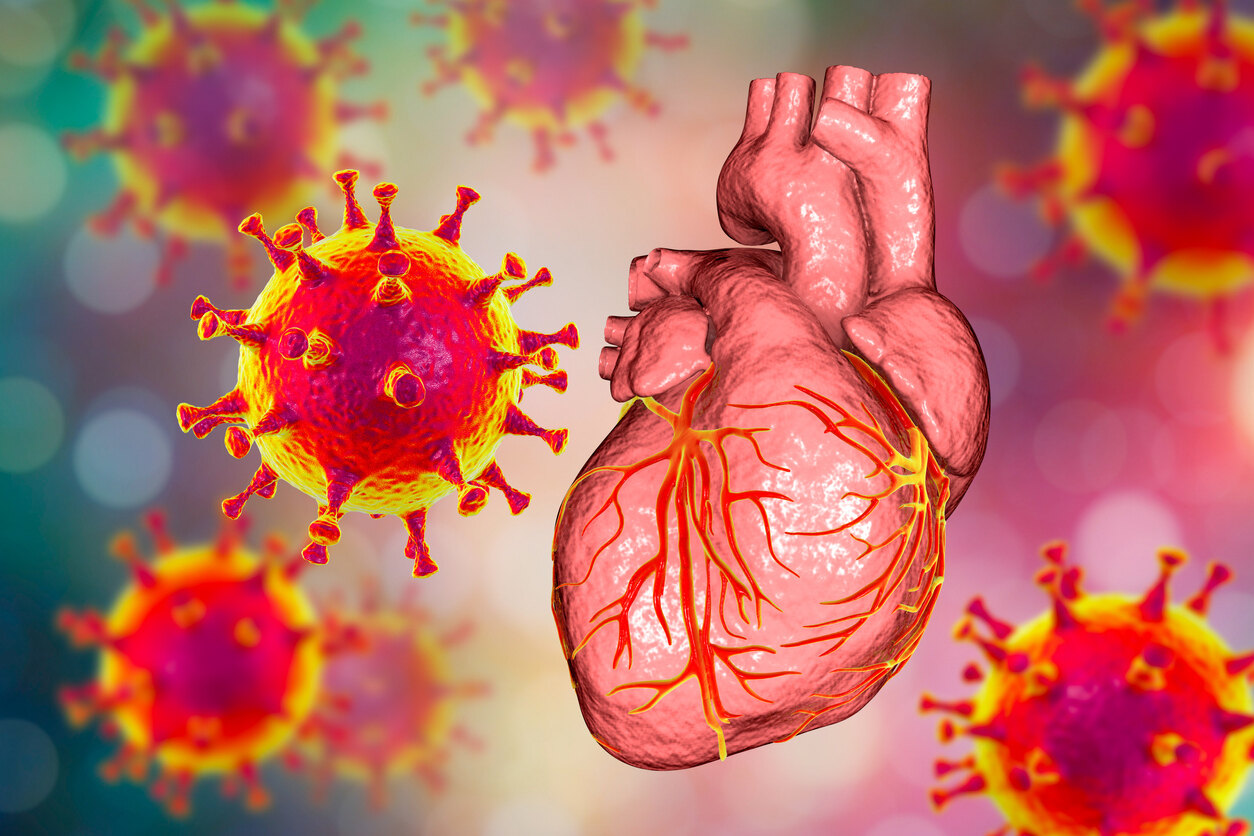
Post-infectious myocarditis is a condition where the heart muscle becomes inflamed after an infection. This can happen due to viruses, bacteria, fungi, or parasites. Symptoms often include chest pain, fatigue, shortness of breath, and irregular heartbeats. While some people recover fully, others may experience long-term heart problems. Diagnosis usually involves blood tests, ECGs, MRIs, and sometimes a biopsy. Treatment can range from medications to manage symptoms to more intensive therapies like intravenous immunoglobulin or even heart transplants in severe cases. Understanding this condition is crucial for early detection and effective management. Here are 30 essential facts about post-infectious myocarditis to help you stay informed.
Key Takeaways:
- Post-infectious myocarditis is when the heart becomes inflamed after an infection, causing symptoms like chest pain and irregular heartbeats. Early diagnosis and treatment are crucial for recovery.
- Common infections like the flu and certain viruses can lead to post-infectious myocarditis. Vaccination, good hygiene, and healthy lifestyle choices can help prevent this condition.
What is Post-Infectious Myocarditis?
Post-infectious myocarditis is a condition where the heart muscle becomes inflamed after an infection. This inflammation can affect the heart's ability to pump blood effectively. Understanding this condition is crucial for recognizing symptoms and seeking timely treatment.
- Definition: Post-infectious myocarditis occurs when the heart muscle, or myocardium, becomes inflamed after an infection.
- Causes: Viral infections are the most common cause, but bacterial, fungal, and parasitic infections can also lead to myocarditis.
- Symptoms: Symptoms can include chest pain, fatigue, shortness of breath, and irregular heartbeats.
- Diagnosis: Doctors use a combination of medical history, physical exams, blood tests, ECGs, and MRIs to diagnose myocarditis.
- Treatment: Treatment often involves medications to reduce inflammation and manage symptoms, such as pain relievers and heart medications.
- Prognosis: The prognosis varies; some people recover fully, while others may develop chronic heart issues.
How Does Post-Infectious Myocarditis Affect the Heart?
The inflammation caused by myocarditis can disrupt the heart's normal function. This section explores how this condition impacts the heart's ability to work properly.
- Inflammation: Inflammation can damage the heart muscle, making it weaker and less efficient at pumping blood.
- Heart Failure: Severe cases can lead to heart failure, where the heart cannot pump enough blood to meet the body's needs.
- Arrhythmias: Inflammation can cause irregular heartbeats, which can be life-threatening if not managed properly.
- Scarring: Long-term inflammation can lead to scarring of the heart tissue, affecting its ability to function.
- Dilated Cardiomyopathy: Chronic myocarditis can cause the heart to enlarge and weaken, a condition known as dilated cardiomyopathy.
Risk Factors for Developing Post-Infectious Myocarditis
Certain factors can increase the risk of developing post-infectious myocarditis. Knowing these risk factors can help in early detection and prevention.
- Age: Young adults and children are more commonly affected.
- Gender: Males are more likely to develop myocarditis than females.
- Weakened Immune System: Individuals with weakened immune systems are at higher risk.
- Pre-existing Heart Conditions: Those with existing heart conditions are more susceptible.
- Recent Infections: Having a recent viral or bacterial infection increases the risk.
Common Infections Leading to Post-Infectious Myocarditis
Various infections can trigger myocarditis. This section highlights some of the most common culprits.
- Coxsackievirus: This virus is a leading cause of myocarditis, especially in children.
- Influenza: The flu virus can also lead to myocarditis in some cases.
- Adenovirus: Commonly causes respiratory infections but can also affect the heart.
- Parvovirus B19: Known for causing fifth disease in children, it can also lead to myocarditis.
- Epstein-Barr Virus: This virus, which causes mononucleosis, can sometimes lead to myocarditis.
Prevention and Management of Post-Infectious Myocarditis
Preventing and managing myocarditis involves a combination of lifestyle changes and medical interventions. Here are some key strategies.
- Vaccination: Vaccines can prevent infections that might lead to myocarditis.
- Good Hygiene: Regular handwashing and avoiding contact with sick individuals can reduce infection risk.
- Healthy Lifestyle: A balanced diet, regular exercise, and avoiding smoking can strengthen the heart.
- Regular Check-ups: Routine medical check-ups can help detect early signs of myocarditis.
- Medication Adherence: Following prescribed treatments and medications can manage symptoms and prevent complications.
Long-Term Effects of Post-Infectious Myocarditis
While some people recover fully, others may experience long-term effects. Understanding these potential outcomes is important for managing health.
- Chronic Heart Disease: Some individuals may develop chronic heart conditions as a result of myocarditis.
- Reduced Exercise Capacity: Long-term inflammation can affect the heart's ability to handle physical activity.
- Ongoing Medication: Some people may need to take heart medications for the rest of their lives.
- Regular Monitoring: Continuous medical monitoring is often necessary to manage long-term effects and prevent complications.
Final Thoughts on Post-Infectious Myocarditis
Post-infectious myocarditis is a serious condition that can follow viral infections. Understanding its symptoms, causes, and treatment options is crucial for early detection and effective management. This condition can affect anyone, regardless of age or health status, making awareness vital. Symptoms like chest pain, fatigue, and shortness of breath should never be ignored. Early intervention can significantly improve outcomes. Treatment often involves medications, lifestyle changes, and sometimes more intensive medical procedures. Staying informed and proactive about heart health can make a big difference. If you or someone you know experiences symptoms, seek medical advice promptly. Knowledge is power, and being aware of post-infectious myocarditis can help protect your heart and overall well-being. Stay vigilant, stay healthy, and always prioritize your heart health.
Frequently Asked Questions
Was this page helpful?
Our commitment to delivering trustworthy and engaging content is at the heart of what we do. Each fact on our site is contributed by real users like you, bringing a wealth of diverse insights and information. To ensure the highest standards of accuracy and reliability, our dedicated editors meticulously review each submission. This process guarantees that the facts we share are not only fascinating but also credible. Trust in our commitment to quality and authenticity as you explore and learn with us.
